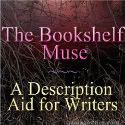#1"We lived happily ever after," (from A Year Down Yonder); and
#2 "Over in England they married and lived happily ever after." (from Loving, by Henry Green)
No Fariy Tale Ending
No serious writer could end a book this way without tongue firmly implanted in cheek, and Green's choice of an ending is made even twistier because as a writer, he's obsessed with the concrete, the close observation of life as it's really lived. Loving is about as far away from fairy tale as it's possible to get. It's set during WWII, and it concerns the downstairs shenanigans of butlers, maids, and cooks in an Irish castle: hilarious, a little raunchy, dialogue-based, full of psychological depth. By the time you get to the end of Loving you could practically finish sentences for his cast, you know them so well.
So to end this book with "happily ever after" conveys a kind of writerly exhaustion.
It says, in a way: "I've told you everything I possibly can about these people. I've done my job and done it well. You're on your own if you need to know more." And also, because it's set during the war you can't help but think--that's not quite the way it works, is it? There will be more wars, we know, lots of them. But also, on balance, there will be lots more loving.
To Resonate and Reflect
I adored Loving, by the way, and highly recommend it. I'll finish today with a few famous last lines that aren't quite so baffling. In her book Second Sight, editor Cheryl B. Klein calls lines like these "fermata," from the musical term, which means "a pause of unspecified length on a note or rest."
"In novels," Klein says, "it's the final line that resonates or reflects upon the emotional experience we've just had in the preceding text, distilling and sustaining that tone as a fermata does."
(Or, like a brass gong, the tone is drawn out, it reverberates, and fades away gradually, leaving a lasting impression).
A Shortlist of Great Last Lines
- Yes, she thought, laying down her brush in extreme fatigue, I have had my vision. --Woolf, To the Lighthouse
- Go, my book, and help destroy the world as it is. --Russell Banks, Continental Drift
- Don't ever tell anybody anything. If you do, you start missing everybody. --Catcher in the Rye.
- "All that is very well," answered Candide. "But let us go and cultivate our garden."--Voltaire
- The old man was dreaming about the lions. --Hemmingway, The Old Man and the Sea.
Looking at these now, it strikes me they all seem to be not just about the story, but about writing and storytelling itself.
Post your own favorite last lines in the comments, or brave hearts, the last lines of your own novels or WIPs.

















The Outsiders: When I stepped out into the bright sunlight from the darkness of the movie house, I had only two things on my mind: Paul Newman and a ride home...
ReplyDeleteThis last line is one of my favorites because it's also the first line. And they both work. Brilliant.
Becca @ The Bookshelf Muse
Very cool. I've never read The Outsiders, but I saw the movie years ago. I think I'll see if it's on Netflix and watch it again. I wonder if Coppola made the beginning and ending mirror each other in the movie?
ReplyDeleteI do remember the last line of the movie being the same as the book's, but I can't remember the beginning. The book is sooooo great, though. And it's a really quick read--its not even 50k.
ReplyDeleteI say many thanks to the father of the website admin I read this, because at this website I know a lot of information information that I did not know before his
ReplyDeleteCara Menghilangkan Penyakit Keputihan Pada Wanita
Obat Mata Katarak Terbaik
Multi-Vitamin Untuk Kesehatan Anak
Obat Tumor Alami Herbal
Obat Melancarkan Peredaran Darah
Cara Merawat Mata Agar Tetap Segar dan Sehat
Cara Mengatasi Gangguan Susah Tidur
Obat Nyeri Buang Air Kecil Pada Wanita
Obat Pembersih Usus Kotor
Obat Angin Duduk Tradisional